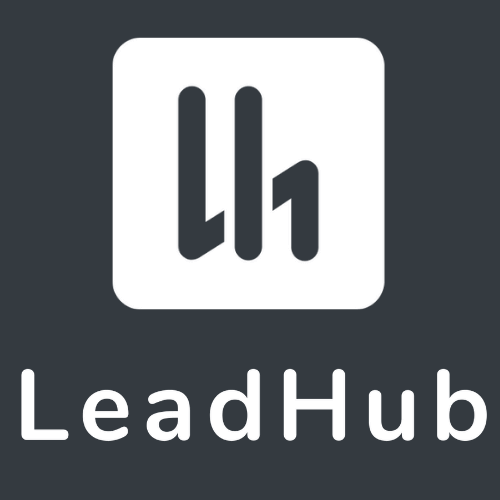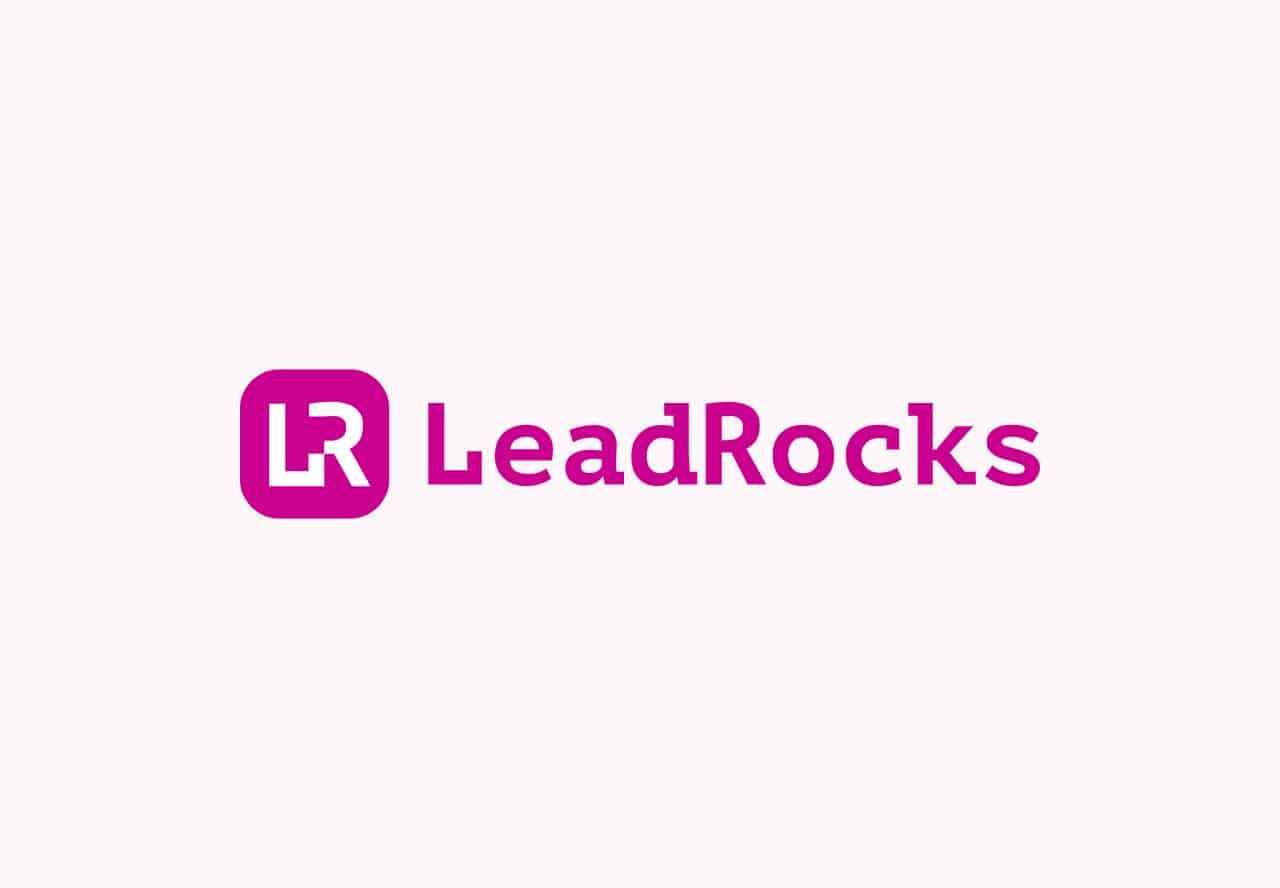Description

LeadMaster

ProsperWorks CRM
Comprehensive Overview: LeadMaster vs ProsperWorks CRM
Sure, here's a comprehensive overview of LeadMaster, ProsperWorks CRM (now known as Copper), and LeadHub:
LeadMaster
a) Primary Functions and Target Markets:
- Primary Functions: LeadMaster is a cloud-based software designed to help businesses manage leads, sales, emails, and marketing campaigns. Its core functionalities include lead management, sales force automation, marketing automation, email marketing, and reporting analytics.
- Target Markets: The platform primarily serves small to medium-sized businesses across various industries, including marketing agencies, real estate, health care, and financial services. It is particularly appealing to companies looking for a unified solution to integrate sales and marketing efforts.
b) Market Share and User Base:
- Market Share: LeadMaster competes in a broad CRM market, primarily focused on smaller businesses. Its market share is relatively modest compared to giants like Salesforce or Microsoft Dynamics.
- User Base: The platform has a decent user base composed mainly of small to medium-sized enterprises. However, specific numbers on the user base are typically not disclosed publicly.
c) Key Differentiating Factors:
- Customization: LeadMaster provides a high level of customization in its CRM, allowing businesses to tailor the software to meet specific needs.
- Integrated Marketing and Sales: The platform uniquely integrates marketing and sales processes, offering features that facilitate this collaboration.
- Affordability: It's often considered more affordable than some larger CRM solutions, making it attractive for smaller businesses.
ProsperWorks CRM (Copper)
a) Primary Functions and Target Markets:
- Primary Functions: Copper, formerly known as ProsperWorks, is a CRM that seamlessly integrates with Google Workspace (G Suite). Its main functionalities include contact management, sales pipeline management, task automation, and email tracking.
- Target Markets: The primary market for Copper is small to medium-sized businesses, particularly those already using Google Workspace. It's designed for industries like technology, consulting, and professional services.
b) Market Share and User Base:
- Market Share: Copper has carved a niche in the CRM market by focusing on tight integration with Google Workspace, but it still faces strong competition from other CRMs.
- User Base: Copper is popular among businesses already utilizing Google tools, and its user base benefits from a streamlined interface that requires minimal new training.
c) Key Differentiating Factors:
- Google Integration: Unlike many CRM systems, Copper is built to work seamlessly with Google Workspace, making it an attractive choice for businesses using Google's suite of tools.
- Ease of Use: Known for its intuitive interface, Copper offers a low learning curve, which can be a significant advantage for teams.
- Automation: Focuses on automation of data entry and administrative tasks, helping users stay organized and efficient.
LeadHub
a) Primary Functions and Target Markets:
- Primary Functions: LeadHub is an online lead generation and lead management system that focuses on helping businesses increase leads and optimize conversion rates. It features lead tracking, analytics, and reporting for marketing campaigns.
- Target Markets: The platform targets small to medium-sized businesses, especially those in need of optimizing lead generation and nurturing processes.
b) Market Share and User Base:
- Market Share: Compared to more established CRM vendors, LeadHub has a smaller market presence, focusing on niche segments within the broader CRM space.
- User Base: LeadHub typically serves small marketing teams and businesses focused on improving their lead management processes, though specific user numbers are not widely publicized.
c) Key Differentiating Factors:
- Lead Generation Focus: Unlike CRMs that cover a broad range of functions, LeadHub specifically focuses on enhancing lead generation and conversion processes.
- Customizable Dashboards: Offers users the ability to tailor dashboards for better visibility of lead metrics and performance.
- Specialized Features: Its tools are geared more towards the marketing aspect, with less emphasis on sales force automation compared to other CRMs.
Overall Comparison
- Integration and Usability: Copper stands out for its Google Workspace integration, making it a strong candidate for Google-centric businesses. LeadMaster offers extensive customization and is valuable for integrating marketing and sales, while LeadHub shines with its focus on lead generation.
- Market Position: LeadMaster and Copper generally have a broader appeal due to their comprehensive CRM functionalities and integration capabilities. LeadHub, on the other hand, is more niche-centric, appealing specifically to businesses looking for strong lead management features.
- Affordability and Scalability: LeadMaster is known for being cost-effective, while Copper provides flexibility for growing teams with a focus on workflow efficiency. LeadHub may offer specialized pricing models aimed at teams focusing solely on lead optimization efforts.
Overall, each of these platforms caters to different business needs and environments, making the choice largely dependent on specific organizational requirements and existing tools like Google Workspace.
Contact Info

Year founded :
Not Available
Not Available
Not Available
Bangladesh
Not Available

Year founded :
Not Available
Not Available
Not Available
Not Available
Not Available
Feature Similarity Breakdown: LeadMaster, ProsperWorks CRM
When comparing LeadMaster, ProsperWorks CRM (now known as Copper), and LeadHub, it's important to recognize both their shared capabilities and their distinct offerings. Here's a detailed breakdown based on the core features and unique aspects of each CRM platform:
a) Core Features in Common
-
Contact Management
- All three platforms offer robust contact management features that help users organize, track, and manage customer information effectively.
-
Lead Management
- Each CRM provides tools for capturing, tracking, and nurturing leads through various stages of the sales pipeline.
-
Sales Automation
- Automation features such as setting reminders, automating follow-ups, and managing repeat tasks are available in all three products.
-
Reporting & Analytics
- Users can generate reports and analyze data to make informed business decisions and track sales performance.
-
Integration Capabilities
- Integration with popular third-party apps such as email clients, calendars, and productivity tools is supported across all three platforms.
-
Customizable Dashboards
- Each CRM allows users to customize their dashboards to keep critical information front and center.
b) User Interface Comparison
-
LeadMaster
- LeadMaster's user interface is functional but may appear somewhat dated compared to more modern platforms. Its focus is on providing comprehensive data and ease of navigation, though it may have a higher learning curve for new users.
-
Copper (formerly ProsperWorks CRM)
- Copper is known for its clean, intuitive interface, especially optimized for integration with Google Workspace. The design is minimalistic and user-friendly, focusing on reducing the time spent on data entry.
-
LeadHub
- LeadHub offers a straightforward interface designed for quick navigation and easy access to lead management features. It is user-friendly and generally appeals to users looking for simplicity and efficiency.
c) Unique Features
-
LeadMaster
- Unique in its extensive marketing automation features, LeadMaster provides advanced capabilities for email marketing campaigns and lead nurturing. It also offers comprehensive customization options for different industry verticals.
-
Copper (formerly ProsperWorks CRM)
- Copper stands out with its deep integration with Google Workspace, making it the go-to choice for businesses heavily relying on Google tools. The CRM is designed to function seamlessly within Gmail and other Google apps, offering an uninterrupted workflow experience.
-
LeadHub
- LeadHub is particularly focused on real estate professionals, offering features specifically tailored for managing real estate leads, such as property management tools and MLS (Multiple Listing Service) integrations.
In summary, while all three CRM platforms share several core features, their distinguishing factors lie in the depth of integration, user interface design, and industry-specific capabilities. Users should consider their specific needs and existing tech stack when choosing the appropriate platform.
Features

Not Available

Not Available
Best Fit Use Cases: LeadMaster, ProsperWorks CRM
When considering CRM systems like LeadMaster, ProsperWorks CRM (now known as Copper), and LeadHub, it's important to understand how each system caters to different business needs. Here's a breakdown of the best fit use cases for each:
a) LeadMaster
Types of Businesses or Projects:
- Small to Mid-sized Enterprises (SMEs): Especially those that are looking for an affordable and versatile CRM solution.
- Sales-Driven Organizations: Companies that need a robust lead management system with a strong focus on sales automation.
- Marketing Agencies: Businesses that require integrated marketing tools and workflow automation.
- Call Centers: LeadMaster offers solutions tailored for call centers, making it ideal for such environments.
Features Highlight:
- Lead management and sales tracking.
- Extensive reporting and analytics.
- Built-in marketing automation capabilities.
- Customizable dashboards and workflows.
b) ProsperWorks CRM (Copper)
Preferred Scenarios:
- Google Workspace (G Suite) Users: Organizations that are heavily invested in Google's ecosystem will benefit from Copper’s seamless integration with Google Workspace applications.
- Tech-Savvy Startups: Those that need a user-friendly interface and a CRM that boosts productivity without a steep learning curve.
- Relationship-Centric Businesses: Companies that focus on nurturing customer relationships over time, such as consultancies or service-based industries.
Features Highlight:
- Native integration with Google Workspace.
- Task automation and pipeline management.
- Relationship management with email tracking and contact history.
- Easy setup with minimal technical requirements.
c) LeadHub
Considerations for Use:
- Lead-Intensive Industries: Businesses that handle a large volume of leads such as real estate, insurance, and financial services.
- Organizations Seeking Simplicity: Those that want a straightforward tool focused on lead management without extraneous features.
- Mobile-First Companies: Businesses that require mobile accessibility and functionality as a primary feature.
Features Highlight:
- Simple lead tracking and management.
- Mobile-friendly design for on-the-go access.
- Basic reporting and analytics for quick insights.
d) Industry Verticals and Company Sizes
LeadMaster:
- Versatile enough for various industries like telecom, finance, health, and manufacturing.
- Caters mainly to small and medium-sized businesses but has the scalability to support larger operations.
ProsperWorks CRM (Copper):
- Ideal for industries that utilize Google Workspace extensively, such as tech startups, digital agencies, and education.
- Suitable for small to medium-sized businesses but can scale with startups as they grow.
LeadHub:
- Primarily advantageous for specific industries like real estate and insurance where lead generation and quick follow-through are critical.
- Best for small businesses or individual professionals seeking a straightforward CRM solution without complex requirements.
Overall, selecting a CRM depends largely on the specific needs of the business, their industry, and how they plan to integrate the CRM solution into their existing workflows. Each of these products offers distinct advantages that can be leveraged depending on the business context and objectives.
Pricing

Pricing Not Available

Pricing Not Available
Metrics History
Metrics History
Comparing undefined across companies
Conclusion & Final Verdict: LeadMaster vs ProsperWorks CRM
To provide a fair and comprehensive conclusion and final verdict for LeadMaster, ProsperWorks CRM (now known as Copper), and LeadHub, it's important to examine each platform across various factors such as features, pricing, ease of use, integrations, and customer support. Here's an analysis to help determine which product offers the best overall value and to outline key pros and cons:
a) Best Overall Value
-
LeadMaster:
- Value Proposition: LeadMaster is known for its comprehensive lead management and marketing automation features. It caters well to sales teams looking for robust lead tracking, reporting, and nurturing capabilities.
- Target Audience: Suited for businesses that require detailed sales process customization and integration with marketing automation.
-
ProsperWorks CRM (Copper):
- Value Proposition: Copper is highly integrated with Google Workspace, making it an excellent choice for businesses heavily invested in Google's ecosystem. It offers a user-friendly interface and automates many CRM tasks.
- Target Audience: Ideal for small to mid-sized businesses and teams that rely on Google tools for their daily operations, seeking a seamless and intuitive CRM experience.
-
LeadHub:
- Value Proposition: Focused on lead generation and nurturing, LeadHub offers essential CRM functionalities with an emphasis on user-friendly lead management and reporting tools.
- Target Audience: Smaller businesses or startups that prioritize lead management simplicity and efficient tracking without overly complex features.
Conclusion: Copper offers the best overall value for businesses using Google Workspace due to its ease of use and seamless integration. However, for companies that need more in-depth marketing automation and reporting, LeadMaster presents a competitive alternative. LeadHub may offer the best value for those needing basic CRM functions with a focus on lead management.
b) Pros and Cons
-
LeadMaster:
- Pros:
- Robust lead management and marketing automation features.
- Customizable dashboards and pipeline management.
- Strong reporting and analytics capabilities.
- Cons:
- Can be complex to set up and navigate for beginners.
- Higher learning curve due to extensive feature set.
- Pros:
-
ProsperWorks CRM (Copper):
- Pros:
- Seamless integration with Google Workspace (Gmail, Calendar, Drive).
- Intuitive and user-friendly interface.
- Automated data entry and workflow optimization.
- Cons:
- Primarily benefits users within the Google ecosystem.
- May not have as much depth in features compared to more specialized CRMs.
- Pros:
-
LeadHub:
- Pros:
- Simplicity and ease of use.
- Affordable pricing for startups and small businesses.
- Basic yet effective lead management tools.
- Cons:
- Limited advanced CRM capabilities.
- May not scale efficiently with growing businesses' demands.
- Pros:
c) Specific Recommendations
-
For Users Heavily Invested in Google Workspace: Choose Copper for its natural integration, streamlined workflow, and minimal onboarding effort.
-
For Businesses Requiring Strong Marketing and Sales Automation: LeadMaster is a better choice with its comprehensive feature set catering to these needs.
-
For Small Businesses or Startups Needing Basic CRM Functions: LeadHub stands out as a straightforward, cost-effective option for managing leads without the complexity of more elaborate CRMs.
Ultimately, the choice between LeadMaster, Copper, and LeadHub depends on the specific needs, scale, and technological environment of a business. Evaluating priorities such as existing ecosystem dependencies, budget, and feature requirements will guide users to the best decision.
Add to compare
Add similar companies



